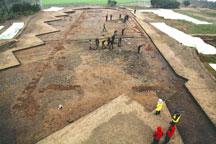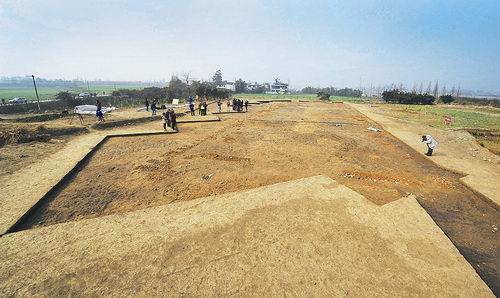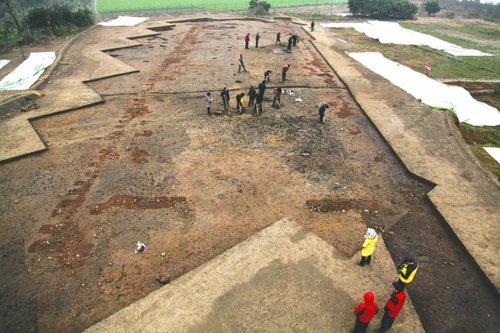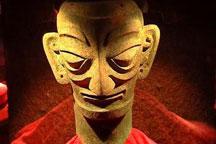The Sanxingdui Ruins is one of the most important archaeological discoveries of the 20th century, not only in China but all over the world. It was hailed as “The ninth wonder of the World”. Yet much about the historical site remains a mystery.
Behind the strange bronze masks is one of the origins of Chinese civilization. They were all unearthed from the Sanxingdui Ruins, located in Guanghan City of southwest China’s Sichuan Province.
It all began when a farmer came across jadewares while digging a ditch in the spring of 1929. This opened the door to an unknown culture between 3,000 to 5,000 years old.
In 1986, Archaeologists found two large-scale sacrificial pits dating from the Shang Dynasty some 3,000 years ago. Thousands of rare treasures were dug out. This made a quite a stir. It was hailed as “the ninth wonder of the World”. Experts dug out large numbers of strange bronze images and animals from the ruins. None of them are marked with characters.
To this day, discoveries at the Sanxingdui site continue to be an enigma. Still, no texts have been unearthed and no historical records of the Sanxingdui culture have been found in the annals of nearby areas, casting a cloud of mystery over the entire site. The culture that produced the artefacts continues to mystify archaeologists.
Related story:
Foundations of Ancient building unveiled in Southwest China
01-16-2013 14:56 BJT
Watch Video

 Play Video
Play Video
In the 1930’s, the remains of a 500-year-old city were discovered at Sanxingdui in southwest China. Now archaeologists working at the site have discovered the foundations of a building they believe could help unlock the secrets of the lost city.
The newly discovered foundations are made of clay and pebble. It covers an area of around 900 square meters and is rectangular in shape. Archaeologists say the building would have contained between six to eight rooms laid out symmetrically. Jade and ivory have been discovered in more than ten locations at the Sanxingdui site. Some of the ivory has been badly weathered. A debate over the purpose of this newly discovered building is now firing the imaginations of archaeologists the world over.
Lei Yu, associate researcher of Sichuan Archaeological Research Inst., said,"Based on the current evidence, I personally think it’s a temple or has something to do with sacrificial ceremonies. We used to think they were palaces, but there are no obvious features to support that. "
Some experts have suggested that it may only have been used as a warehouse.
 |
Liu Xu, professor of School Of Archaeology, Peking Univ., said, "I think it’s a warehouse. But given its grand size, it was probably no ordinary warehouse. It probably would have belonged to someone very important. "
The Sanxingdui site was discovered in the 1930s, but the wealth of artefacts buried here are 5000 years old and date back to the Shang Dynasty. Archaeologists hope the new discoveries will help create a more detailed narrative of what life was like in this mysterious city.
 |
Source: CCTV.com |

No comments:
Post a Comment